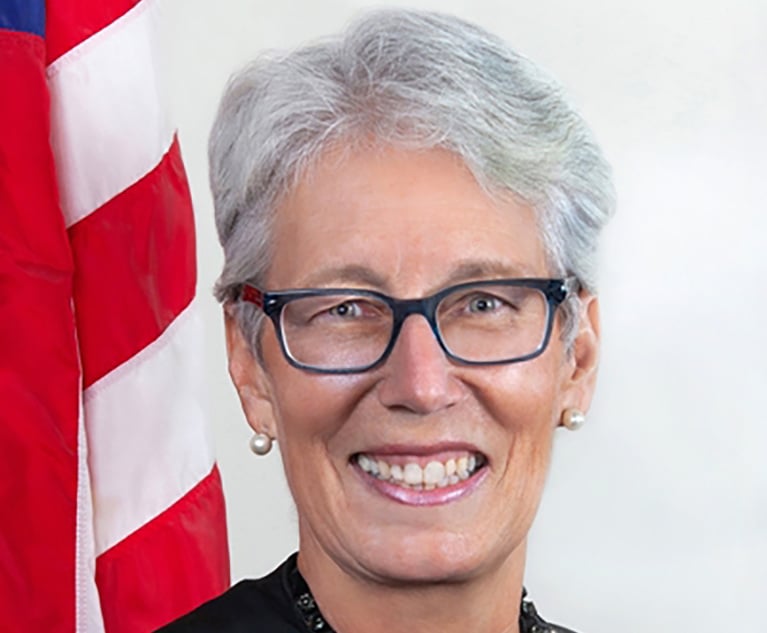Carney Asks 3rd Circuit for En Banc Review of Decision Tossing Party-Balance Rule for Key Del. Courts
Delaware Gov. John Carney has asked the U.S. Court of Appeals for the Third Circuit to rehear en banc the case that struck provisions of the Delaware Constitution mandating balance between the state's two major political parties on key state courts.
February 27, 2019 at 04:12 PM
4 minute read
The original version of this story was published on Delaware Law Weekly

Delaware Gov. John Carney has asked the U.S. Court of Appeals for the Third Circuit to rehear en banc the case that struck provisions of the Delaware Constitution mandating balance between the state's two major political parties on key state courts.
Carney, who nominates judges for approval by the state Senate, filed his petition for rehearing en banc Feb. 18, after a three-judge panel of the Philadelphia-based appeals court ruled that Delaware's party-balance requirements unconstitutionally prevented registered independents and third-party members from serving as judges.
In his filing, Carney said that the panel's precedential opinion put the Third Circuit at odds with other jurisdictions and could have “profound implications” well beyond Delaware.
The judges could decide as early as Thursday whether the opinion had raised “questions of exceptional importance” to warrant full-court review, though it was not yet clear when they would rule on Carney's petition. A majority of the court's active judges is needed to grant the rehearing.
On Feb. 5, the Third Circuit held for the first time that judges do not qualify as policymakers to fit a narrow exception to the First Amendment that allows party affiliation to be taken into account when considering applicants for certain governmental positions.
Judge Julio M. Fuentes, writing on behalf of the panel, said the policy-making exception was meant to ensure that elected officials could install loyal employees to enact an administration's policy agendas. But judges, on the other hand, are expected to make decisions in the individual cases before them, without regard for partisan agendas based on political interests, he said.
He was joined by Judges Theodore A. McKee and Luis F. Restrepo.
The ruling applies to Delaware's Supreme and Chancery Courts, which both play an outsize role in developing American corporate law, as well as the Superior Court, whose membership was required by law to be composed entirely of judges from the state's two dominant political parties. It does not apply to the Family Court or Court of Common Pleas.
The decision threatened to put an end the state's 120-year-old practice of nominating judges under the party-balance provisions, which were first adopted in 1897. But it also exposed a circuit split on the issue, after the Sixth and Seventh Circuits both held that judges do qualify as policymakers because their political beliefs influence decisions on key questions of law.
Attorneys for Carney argued that judges in Delaware hold “precisely the type of position” involved in establishing policies of “political concern” and are thus subject to confirmation by the state Senate.
“The Delaware electorate by their legislative representatives has expressed its desire to balance the differing philosophies and limit or eliminate partisanship in the selection of judges by mandating political balance,” Young Conaway Stargatt & Taylor partner David C. McBride wrote in the filing. “Judges are to the judicial branch of government what a governor or president is to the executive branch or a senator or representative is to the legislative branch.”
Under the Third Circuit's reasoning, McBride said, U.S. presidents could also be barred from considering the views of prospective appointees to independent federal agencies when making their own selections.
David L. Finger, an attorney for the plaintiff in the case, said Wednesday that the Third Circuit's ruling was “well-reasoned and unanimous.”
“I do not expect the court to rehear the case,” he said.
McBride did not return a call seeking comment on the filing.
According to the the Third Circuit's internal operating procedures, judges typically have ten days from the filing of a petition to vote on whether to rehear the case. However, if just one judge were to vote for rehearing, another could circulate a letter automatically triggering a five-day extension to the voting period.
The case is captioned Adams v. Carney.
This content has been archived. It is available through our partners, LexisNexis® and Bloomberg Law.
To view this content, please continue to their sites.
Not a Lexis Subscriber?
Subscribe Now
Not a Bloomberg Law Subscriber?
Subscribe Now
NOT FOR REPRINT
© 2025 ALM Global, LLC, All Rights Reserved. Request academic re-use from www.copyright.com. All other uses, submit a request to [email protected]. For more information visit Asset & Logo Licensing.
You Might Like
View All
Attorneys, Professors Share Support for Chancellor Following Musk's Online Attacks
4 minute read

Jurden Announces 2025 Retirement, Capping 24 Years on Superior Court
3 minute read
Trending Stories
- 1DC Circuit Keeps Docs in Judge Newman's Misconduct Proceedings Sealed
- 2Litigators of the Week: US Soccer and MLS Fend Off Claims They Conspired to Scuttle Rival League’s Prospect
- 3Litigator of the Week Runners-Up and Shout-Outs
- 4U.S.- China Trade War: Lawyers and Clients Left 'Relying on the Governments to Sort This Out'
- 5Willkie Adds Five-Lawyer Team From Quinn Emanuel in Germany
Who Got The Work
J. Brugh Lower of Gibbons has entered an appearance for industrial equipment supplier Devco Corporation in a pending trademark infringement lawsuit. The suit, accusing the defendant of selling knock-off Graco products, was filed Dec. 18 in New Jersey District Court by Rivkin Radler on behalf of Graco Inc. and Graco Minnesota. The case, assigned to U.S. District Judge Zahid N. Quraishi, is 3:24-cv-11294, Graco Inc. et al v. Devco Corporation.
Who Got The Work
Rebecca Maller-Stein and Kent A. Yalowitz of Arnold & Porter Kaye Scholer have entered their appearances for Hanaco Venture Capital and its executives, Lior Prosor and David Frankel, in a pending securities lawsuit. The action, filed on Dec. 24 in New York Southern District Court by Zell, Aron & Co. on behalf of Goldeneye Advisors, accuses the defendants of negligently and fraudulently managing the plaintiff's $1 million investment. The case, assigned to U.S. District Judge Vernon S. Broderick, is 1:24-cv-09918, Goldeneye Advisors, LLC v. Hanaco Venture Capital, Ltd. et al.
Who Got The Work
Attorneys from A&O Shearman has stepped in as defense counsel for Toronto-Dominion Bank and other defendants in a pending securities class action. The suit, filed Dec. 11 in New York Southern District Court by Bleichmar Fonti & Auld, accuses the defendants of concealing the bank's 'pervasive' deficiencies in regards to its compliance with the Bank Secrecy Act and the quality of its anti-money laundering controls. The case, assigned to U.S. District Judge Arun Subramanian, is 1:24-cv-09445, Gonzalez v. The Toronto-Dominion Bank et al.
Who Got The Work
Crown Castle International, a Pennsylvania company providing shared communications infrastructure, has turned to Luke D. Wolf of Gordon Rees Scully Mansukhani to fend off a pending breach-of-contract lawsuit. The court action, filed Nov. 25 in Michigan Eastern District Court by Hooper Hathaway PC on behalf of The Town Residences LLC, accuses Crown Castle of failing to transfer approximately $30,000 in utility payments from T-Mobile in breach of a roof-top lease and assignment agreement. The case, assigned to U.S. District Judge Susan K. Declercq, is 2:24-cv-13131, The Town Residences LLC v. T-Mobile US, Inc. et al.
Who Got The Work
Wilfred P. Coronato and Daniel M. Schwartz of McCarter & English have stepped in as defense counsel to Electrolux Home Products Inc. in a pending product liability lawsuit. The court action, filed Nov. 26 in New York Eastern District Court by Poulos Lopiccolo PC and Nagel Rice LLP on behalf of David Stern, alleges that the defendant's refrigerators’ drawers and shelving repeatedly break and fall apart within months after purchase. The case, assigned to U.S. District Judge Joan M. Azrack, is 2:24-cv-08204, Stern v. Electrolux Home Products, Inc.
Featured Firms
Law Offices of Gary Martin Hays & Associates, P.C.
(470) 294-1674
Law Offices of Mark E. Salomone
(857) 444-6468
Smith & Hassler
(713) 739-1250






